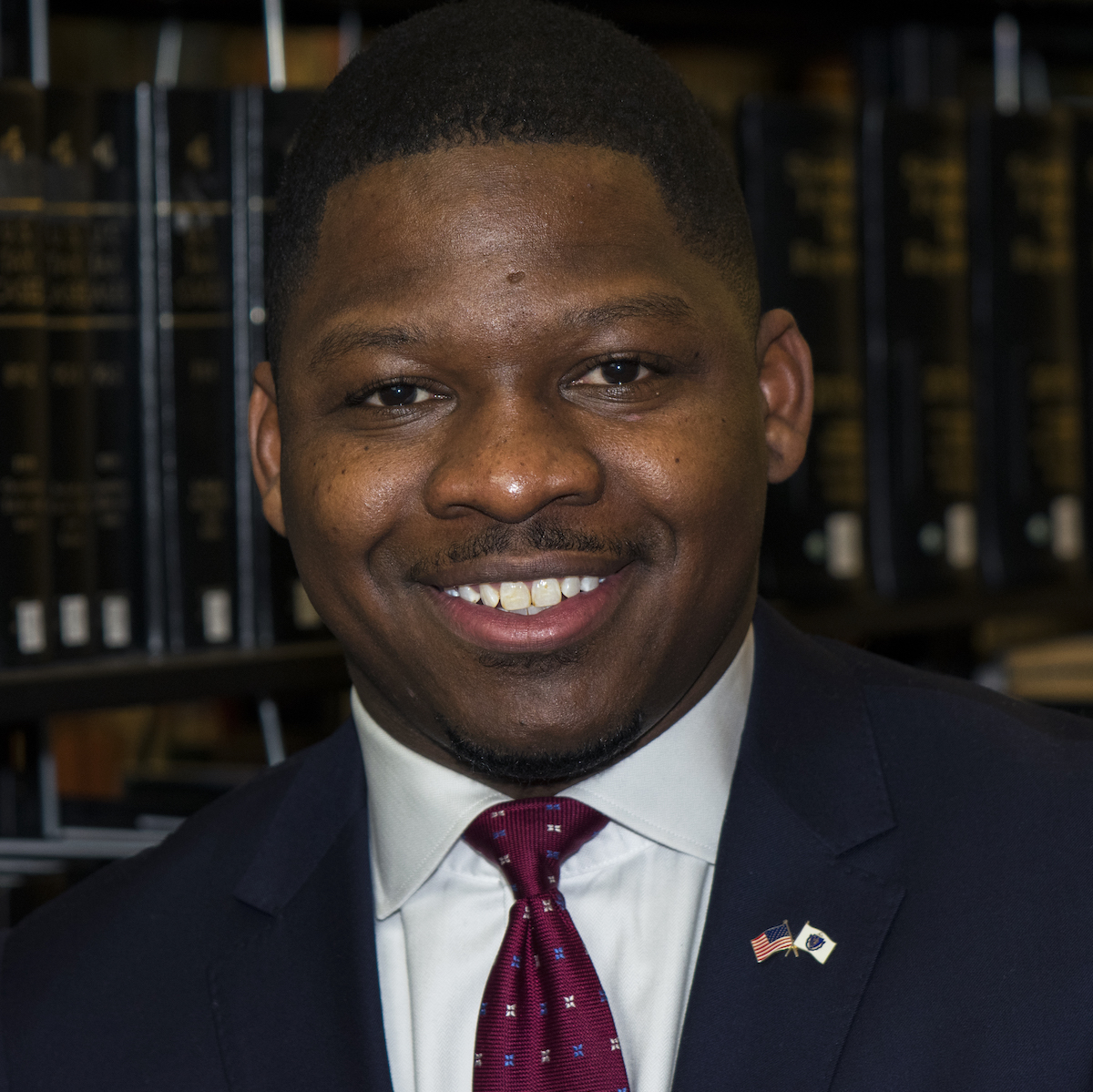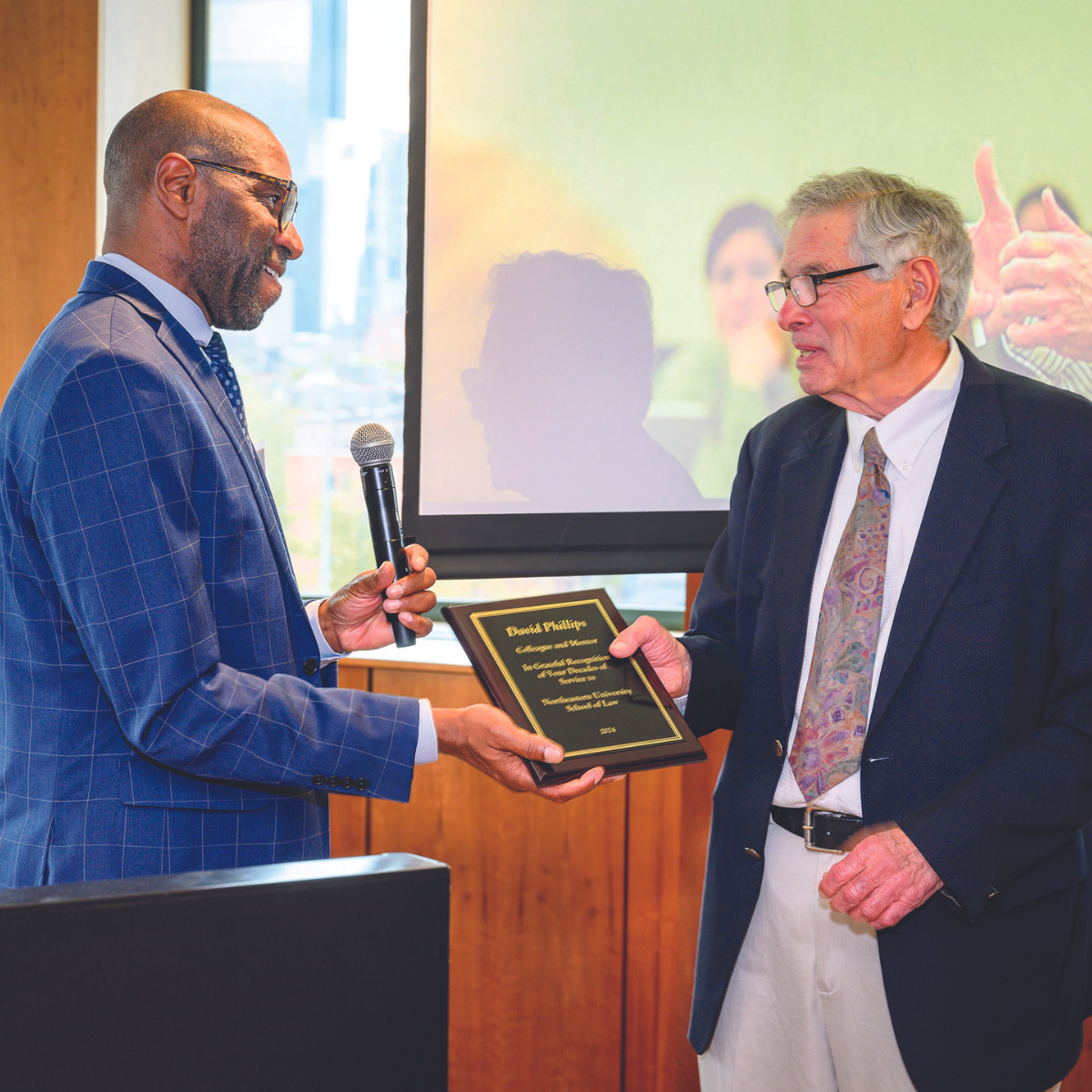
Professors Martha Davis (left) and Aliza Hochman-Bloom
Northeastern Law Faculty Submit Amicus Briefs
 Professor Martha Davis, an internationally recognized expert on economic and social rights, joined with a group of leading law faculty in April to submit an amicus brief to the US Supreme Court in City of Grants Pass, Oregon v. Gloria Johnson, a case in which the Supreme Court ultimately upheld an Oregon city’s laws aimed at banning homeless residents from sleeping outdoors, saying they did not violate the Constitution’s prohibition on cruel and unusual punishment. The decision was met with mixed reactions among leaders in Western states, particularly in California, where growing encampments in major cities have put political pressure on local and state governments to act.
Professor Martha Davis, an internationally recognized expert on economic and social rights, joined with a group of leading law faculty in April to submit an amicus brief to the US Supreme Court in City of Grants Pass, Oregon v. Gloria Johnson, a case in which the Supreme Court ultimately upheld an Oregon city’s laws aimed at banning homeless residents from sleeping outdoors, saying they did not violate the Constitution’s prohibition on cruel and unusual punishment. The decision was met with mixed reactions among leaders in Western states, particularly in California, where growing encampments in major cities have put political pressure on local and state governments to act.
“The brief debunks the city’s assertion that contemporary efforts to criminalize homelessness find support in US historic practice of vagrancy laws,” said Davis, who serves as faculty codirector of Northeastern Law’s Program on Human Rights and the Global Economy and is the author of several books related to human rights, including Human Rights Advocacy in the United States (West, 3rd ed. 2023).
 Professor Aliza Hochman Bloom filed an amicus brief in the Rhode Island Supreme Court in Rhode Island vs. Neves et al. supporting less severe sentencing for those who committed crimes as juveniles and emerging adults. Along with Human Rights for Kids and the Campaign for the Fair Sentencing of Youth, Hochman Bloom argued for an interpretation of R.I. § 13-8-13(e), also known as Mario’s Law, that retroactively expands parole eligibility for people convicted of crimes committed before the age of 22. Hochman Bloom argued that Mario Monteiro and three other individuals who have been incarcerated for more than 22 years are eligible for parole and immediate release to the community.
Professor Aliza Hochman Bloom filed an amicus brief in the Rhode Island Supreme Court in Rhode Island vs. Neves et al. supporting less severe sentencing for those who committed crimes as juveniles and emerging adults. Along with Human Rights for Kids and the Campaign for the Fair Sentencing of Youth, Hochman Bloom argued for an interpretation of R.I. § 13-8-13(e), also known as Mario’s Law, that retroactively expands parole eligibility for people convicted of crimes committed before the age of 22. Hochman Bloom argued that Mario Monteiro and three other individuals who have been incarcerated for more than 22 years are eligible for parole and immediate release to the community.
“The Rhode Island legislature passed this legislation in line with sweeping national change rejecting extreme sentences for youth and young adults,” said Hochman Bloom. “Interpretations of R.I. § 13-8-13(e) that preclude relief for respondents Neves, Nunes, Ortega, Monteiro and similarly situated youth and young adults undermine the purpose of these reforms and create unconstitutionally disproportionate sentences.”
Share
Northeastern University School of Law is pleased to welcome Professors Sarah Lageson and David Stein and to our community.
Professor David Phillips retired in June after 46 years teaching at Northeastern, 40 of them as a full-time faculty member. Professor Jeremy Paul offers his thoughts on his impact and legacy.







